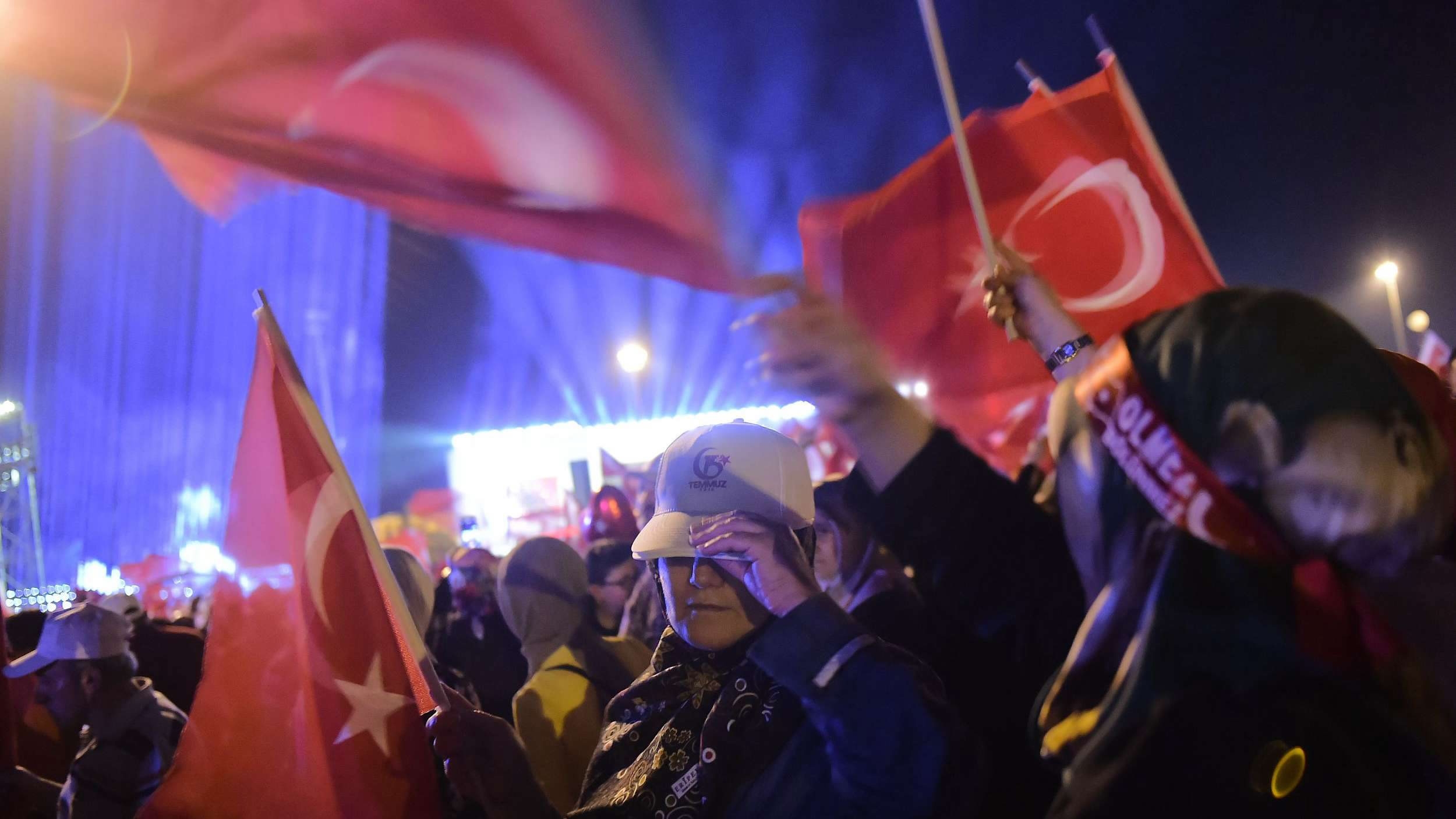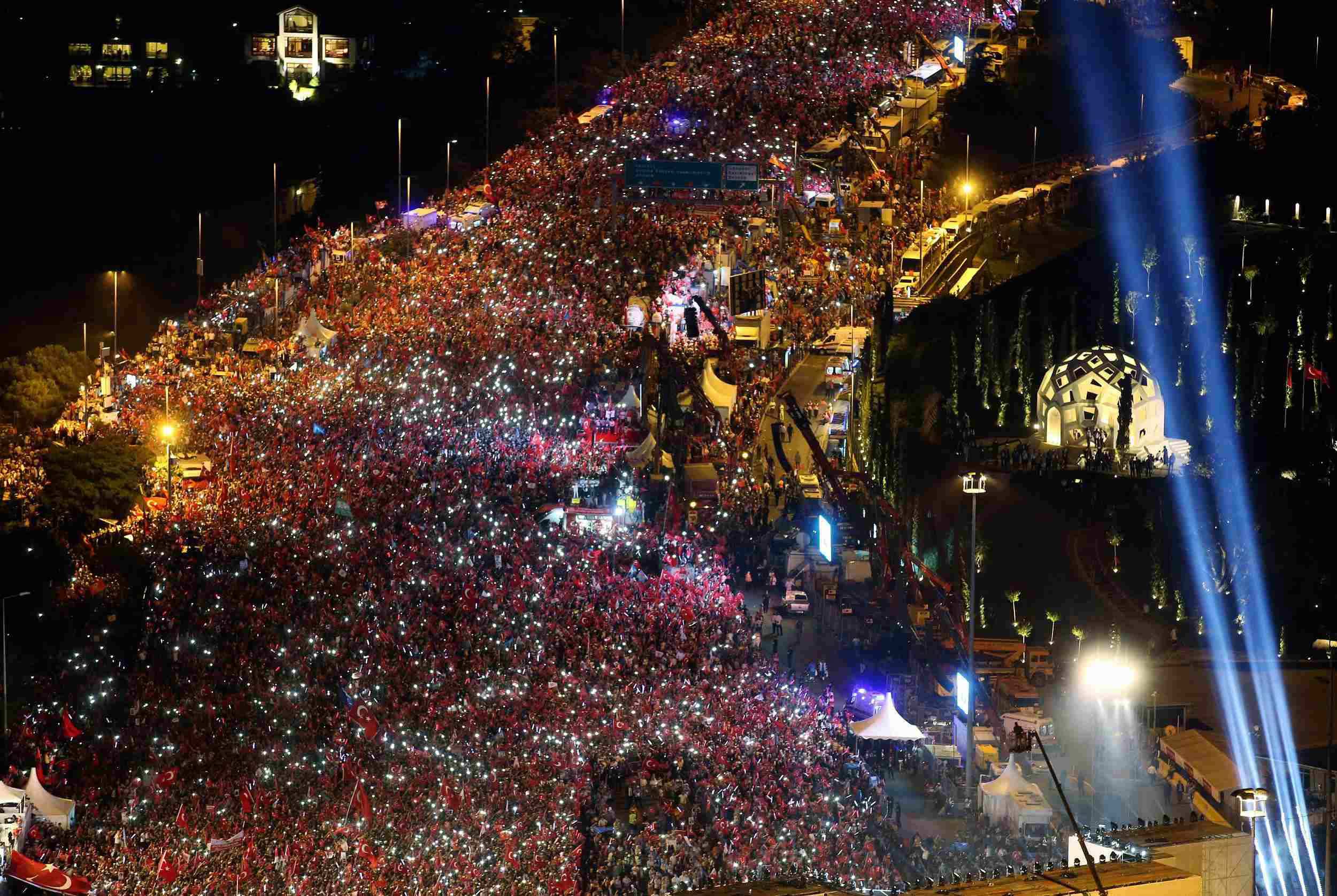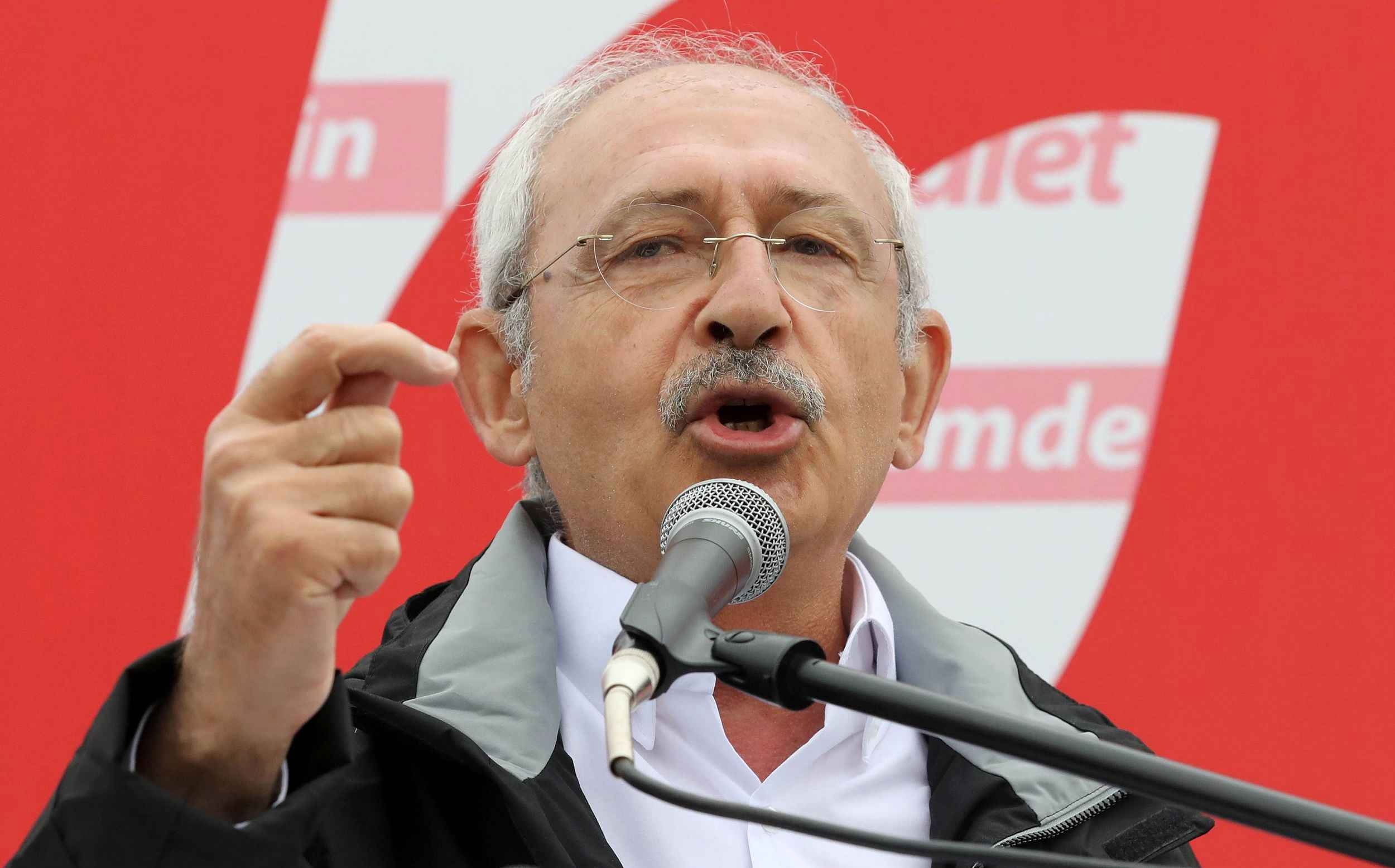Hundreds of thousands of Turks rallied to mark the anniversary of last year's failed coup on Saturday, in an outpouring of mass support for President Tayyip Erdogan that lay bare the divisions of a society riven by widespread purges.
A sea of rapturous, flag-waving crowds gathered in Istanbul to listen as a defiant Erdogan promised to punish his enemies and praised the unarmed civilians who last year stood up to the rogue soldiers and their tanks.
"They showed no mercy when they pointed their guns at my people," Erdogan said.
"What did my people have? They had their flags – just as they do today – and something much more important: They had their faith."

People wave Turkish national flags to celebrate the first anniversary of failed coup in Istanbul, July 15, 2017. /VCG Photo
Some 250 people were killed and parliament was bombed before the coup was put down. The show of popular defiance has likely ended decades of military interference in Turkish politics.
But along with a groundswell of nationalism, the coup's greatest legacy has been a far-reaching crackdown that has deepened the divide between Western-facing, secular Turks and the pious millions who back Erdogan's Islamist-rooted politics.
Some 150,000 people have been sacked or suspended from jobs in the civil service and private sector and more than 50,000 detained for alleged links to the putsch. On Friday, the government said it had dismissed 7,000 more police officers, civil servants and academics for suspected links to the Muslim cleric it blames for the attempted coup.

July 15, 2017: Turkey's President Recep Tayyip Erdogan waves to the crowd at a ceremony site on "July 15 Martyrs Bridge" in Istanbul. /VCG Photo
Restore capital punishment
"Nobody who betrays this nation can remain unpunished," Erdogan said, promising again to restore the death penalty if parliament votes to bring it back, a move that would all but end Turkey's bid to join the EU.
"First of all we will chop off the heads of those traitors," Erdogan said, prompting cries from the crowds.
Reaffirming previous comments, he vowed to sign any bill passed by parliament to restore capital punishment in Turkey.
"We are a state governed by rule of law. If it comes to me after parliament, I will sign it," he said.

Turkish President Tayyip Erdogan addresses his supporters during a ceremony marking the first anniversary of the attempted coup at the Bosphorus Bridge in Istanbul, July 15, 2017. /VCG Photo
Thousands march
In Istanbul, hundreds of thousands gathered to listen to Erdogan near the bridge spanning the Bosphorus, the spot where last year civilians confronted the tanks and troops who had halted traffic between the city's European and Asian sides.
Roads near the bridge – since renamed "July 15 Martyrs' Bridge" – were so crowded that some people opted to come by ferry. Some in the crowd carried posters of those who died.

July 15, 2017: Crowds at the ceremony site on "July 15 Martyrs Bridge" in Istanbul. /VCG Photo
Justice destroyed
Critics, including rights groups and some Western governments, say that Erdogan is using the state of emergency introduced after the coup to target opposition figures including rights activists, pro-Kurdish politicians and journalists.
The two co-leaders of the pro-Kurdish Peoples' Democratic Party (HDP) are in jail – as are local members of rights group Amnesty International and nearly 160 journalists, according to the Committee to Protect Journalists.
At a parliamentary ceremony in Ankara on Saturday, the head of the main opposition Republican People's Party (CHP) decried what he said was the erosion of democracy following the coup.

Turkey's main opposition Republican People's Party (CHP) leader Kemal Kilicdaroglu gives his weekly parliamentary group speech in the town of Camlidere in the Ankara Province, June 20, 2017. /VCG Photo
"This parliament, which withstood bombs, has been rendered obsolete and its authority removed," said Kemal Kilicdaroglu, in a reference to an April referendum that Erdogan narrowly won, giving him sweeping executive powers.
"In the past year, justice has been destroyed. Instead of rapid normalization, a permanent state of emergency has been implemented."
Kilicdaroglu this month finished a 25-day, 425 km (265 mile) "justice march" from Ankara to Istanbul, to protest the detention of a CHP lawmaker. The march, although largely ignored by the pro-government media, culminated in a massive rally in Istanbul against the crackdown.
(Source: Reuters, AFP)










